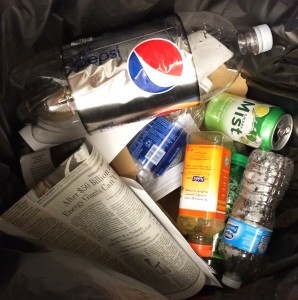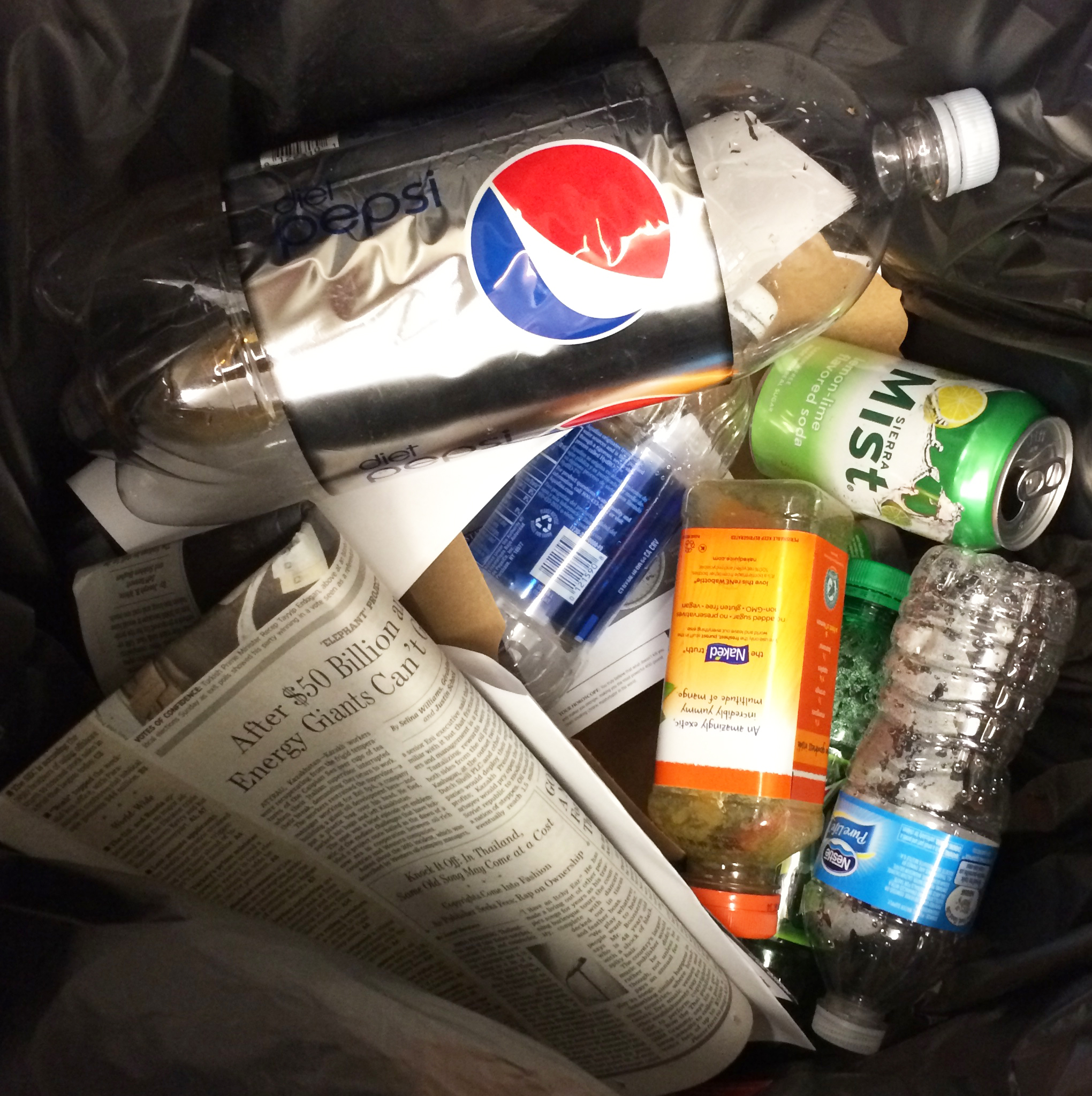St. Paul residents will no longer have to sort their recyclables after the city switched to a single-sort system Monday; however, St. Thomas is still deciding how the university will modify its procedure.
The city’s change from the two to one-stream system will allow residents to combine all of their recyclable materials and put them on the curb in one bin—a change that, according to the City of St. Paul website, was inspired by a 2012-2013 Wilder Research Foundation comprehensive recycling assessment.
Paul Hietpas, Physical Plant’s assistant coordinator of recycling and receiving, said while St. Thomas highly encourages recycling, changing the university’s system would mean retrofitting the entire campus system, which would be a large undertaking.

“We have thousands of recycling receptacles all over campus,” Hietpas said. “We’ll make the best decision from what we can do within our facilities. We really encourage recycling within our campus, and I certainly hope that people are excited about this big change.”
The change will also allow residents to recycle No. 1, 2, 4, 5 and 7 plastic containers.
“For a long time, we were only recycling plastic in the shape of a bottle, and that was 1 or 2,” Hietpas said. “We’re enthusiastic that we’ll be able to recycle yogurt cups, sour cream containers and all sorts of other types of plastic.”
While Hietpas said adding more plastics will be a beneficial change, the single-sort system could pose some challenges for the university.
“The problem with single stream recycling is that paper gets heavily contaminated with grease and other products that get into the paper, so we have our reservations about going that direction,” Hietpas said.
Hietpas said St. Thomas also sells all of its aluminum cans, paper and cardboard for revenue—a process that would be eliminated with a single-sort system. .
“If we abandon the sorting part, we lose that revenue,” Hietpas said.
Senior Erin Statz said she thinks the new system will be an improvement.
“It’s just so much easier to just put it in a bag,” Statz said. “Just to put it in a bin and not having to separate it out and everything, and then if they don’t take it, then it piles up for two weeks, and it’s just gross.”
Graduate student Oluyomi Gbadegesin said the new system should help inspire more students to recycle.
“I feel it’s just a very good idea, and it would (give) the entire St. Paul residents (a) much better place … a much cleaner place,” Gbadegesin said.
Freshman Justin Eayrs said he is excited about the new process, but as an engineering student, he recognized how it might be difficult to monitor.
“I guess if the system is not efficient enough, we might miss some potential recyclable material,” Eayrs said. “But, I mean, assuming that they have good people working on it and everything gets filtered correctly, I guess it would make sense.”



